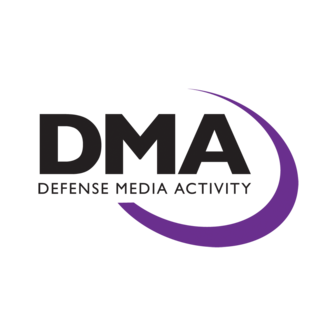 W
WMass media in the United States consist of several types of media: television, radio, cinema, newspapers, magazines, and web sites. The U.S. also has a strong music industry. Many of the media are controlled by large for-profit corporations who reap revenue from advertising, subscriptions, and sale of copyrighted material. American media conglomerates tend to be leading global players, generating large revenues as well as large opposition in many parts of the world. With the passage of the Telecommunications Act of 1996, further deregulation and convergence are under way, leading to mega-mergers, further concentration of media ownership, and the emergence of multinational media conglomerates. These mergers enable tighter control of information. Currently, five corporations control roughly 90% of the media. Critics allege that localism, local news and other content at the community level, media spending and coverage of news, and diversity of ownership and views have suffered as a result of these processes of media concentration.
 W
WThe Defense Media Activity (DMA) is a United States Department of Defense (DoD) field activity. It provides a broad range of high-quality multimedia products and services to inform, educate, and entertain Department of Defense audiences around the world. The Defense Media Activity is located on Fort Meade, Maryland. DoD field activities are established as DoD components by law, by the President, or by the Secretary of Defense to provide for the performance, on a DoD-wide basis, of a supply or service activity that is common to more than one Military Department when it is determined to be more effective, economical, or efficient to do so. DMA operates as a separate DoD Component under the authority, direction and control of the Assistant to the Secretary of Defense for Public Affairs.
 W
WAccording to the website of the Cambridge English Dictionary, the term fake news "is frequently used to describe a political story which is seen as damaging to an agency, entity, or person. However,. .. it is by no means restricted to politics, and seems to have currency in terms of general news." False news has been defined as "political speech." Media scholar Dr. Nolan Higdon has offered a broader definition of fake news as “false or misleading content presented as news and communicated in formats spanning spoken, written, printed, electronic, and digital communication." This article treats of both, within the context of the United States.
 W
WFake news in the United States in the 1890s was recognized. One editorialist wrote in 1896 that:The American newspapers are fairly beating their own record at the present time in their success in getting up sensations and setting afloat fake news.. .. our people are in a frame of mind which accepts without question the most absurd statements the mind of man can conceive, and even try to invent excuses for their credulity.
 W
WThe James S. Brady Press Briefing Room is a small theater in the West Wing of the White House where the White House press secretary gives briefings to the news media and the president of the United States sometimes addresses the press and the nation. It is located between the workspace assigned to the White House press corps and the office of the press secretary.
 W
WMedia Cloud is an open-source content analysis tool that aims to map news media coverage of current events. It "performs five basic functions -- media definition, crawling, text extraction, word vectoring, and analysis." Media cloud "tracks hundreds of newspapers and thousands of Web sites and blogs, and archives the information in a searchable form. The database ... enable[s] researchers to search for key people, places and events — from Michael Jackson to the Iranian elections — and find out precisely when, where and how frequently they are covered." Media Cloud was developed by the Berkman Center for Internet & Society at Harvard University and launched in March 2009. It's distributed under the GNU GPL 3+.
 W
WMedia portrayals of the Ukrainian crisis, including 2014 unrest and the 2014 Ukrainian revolution following the Euromaidan movement, differed widely between Ukrainian, Western and Russian media. The Russian, the Ukrainian, and the Western media were all, to various degrees, accused of propagandizing, and of waging an information war during their coverage of the events. Russian channels were repeatedly criticized for the use of misleading images, false narratives, misrepresentation, suppression, and fabricated news stories, such as a child's crucifixion and the death of a 10-year-old in shelling. The BBC reported that Russian state television "appears to employ techniques of psychological conditioning designed to excite extreme emotions of aggression and hatred in the viewer", which, according to The Guardian, is part of a coordinated "informational-psychological war operation".
 W
WMass media are the means through which information is transmitted to a large audience. This includes newspapers, television, radio, and more recently the Internet. Organizations that provide news through mass media in the United States are collectively known as the news media in the United States.
 W
WRemezcla is an American media company focusing on the Latin American cultural sphere. It serves the millennial market.
 W
WThe seven dirty words are seven English-language curse words that American comedian George Carlin first listed in his 1972 "Seven Words You Can Never Say on Television" monologue. The words, in the order Carlin listed them, are: "shit", "piss", "fuck", "cunt", "cocksucker", "motherfucker", and "tits".